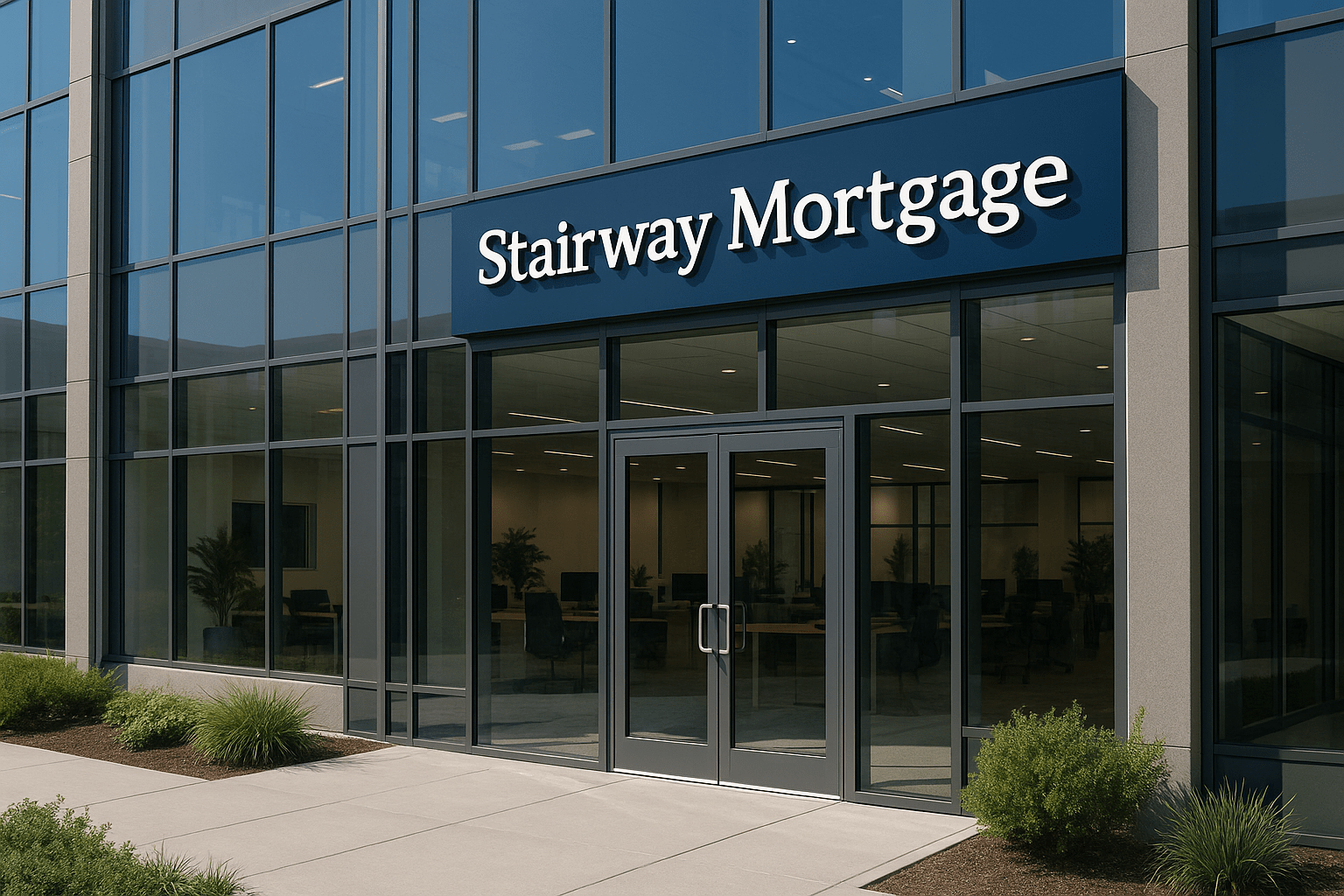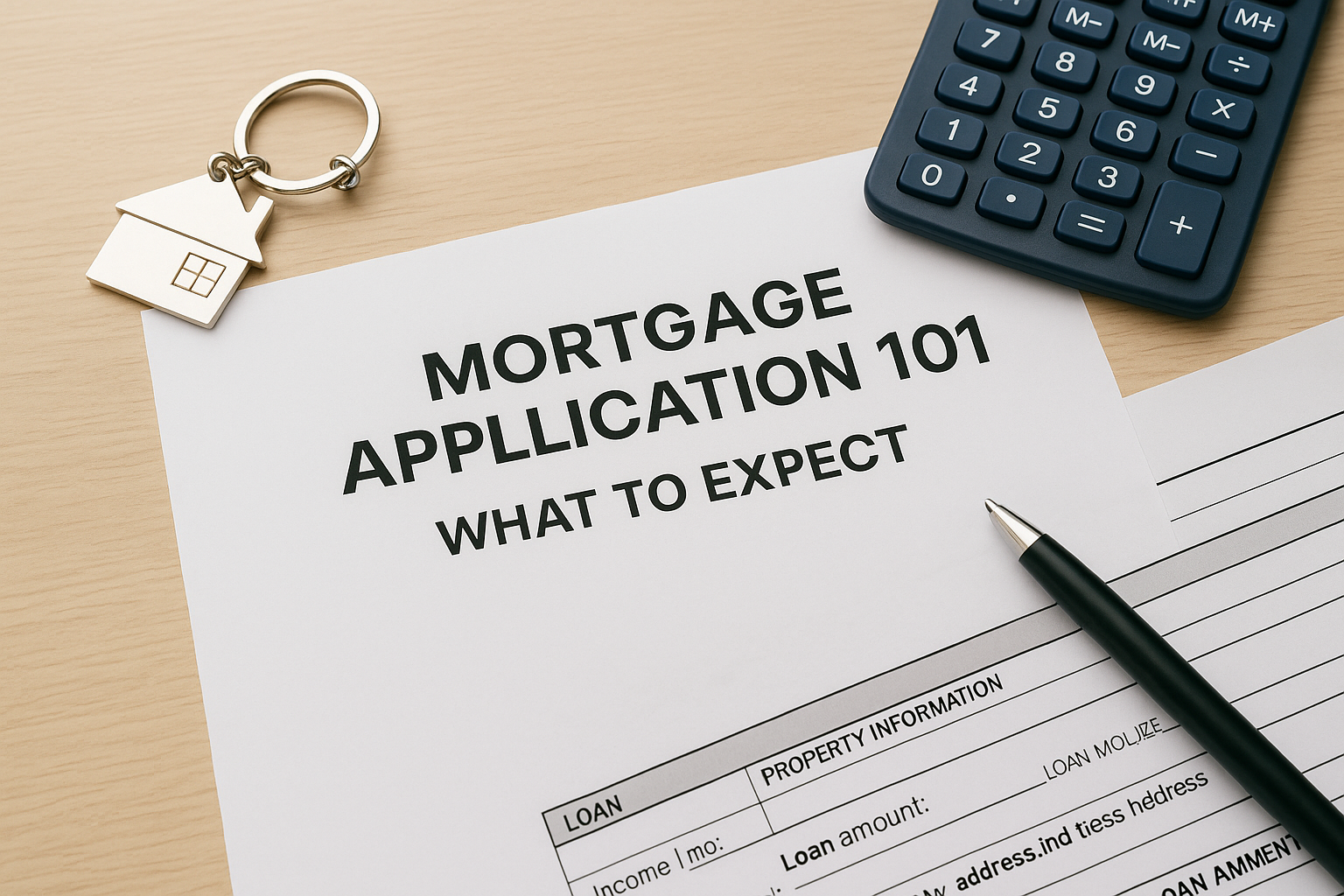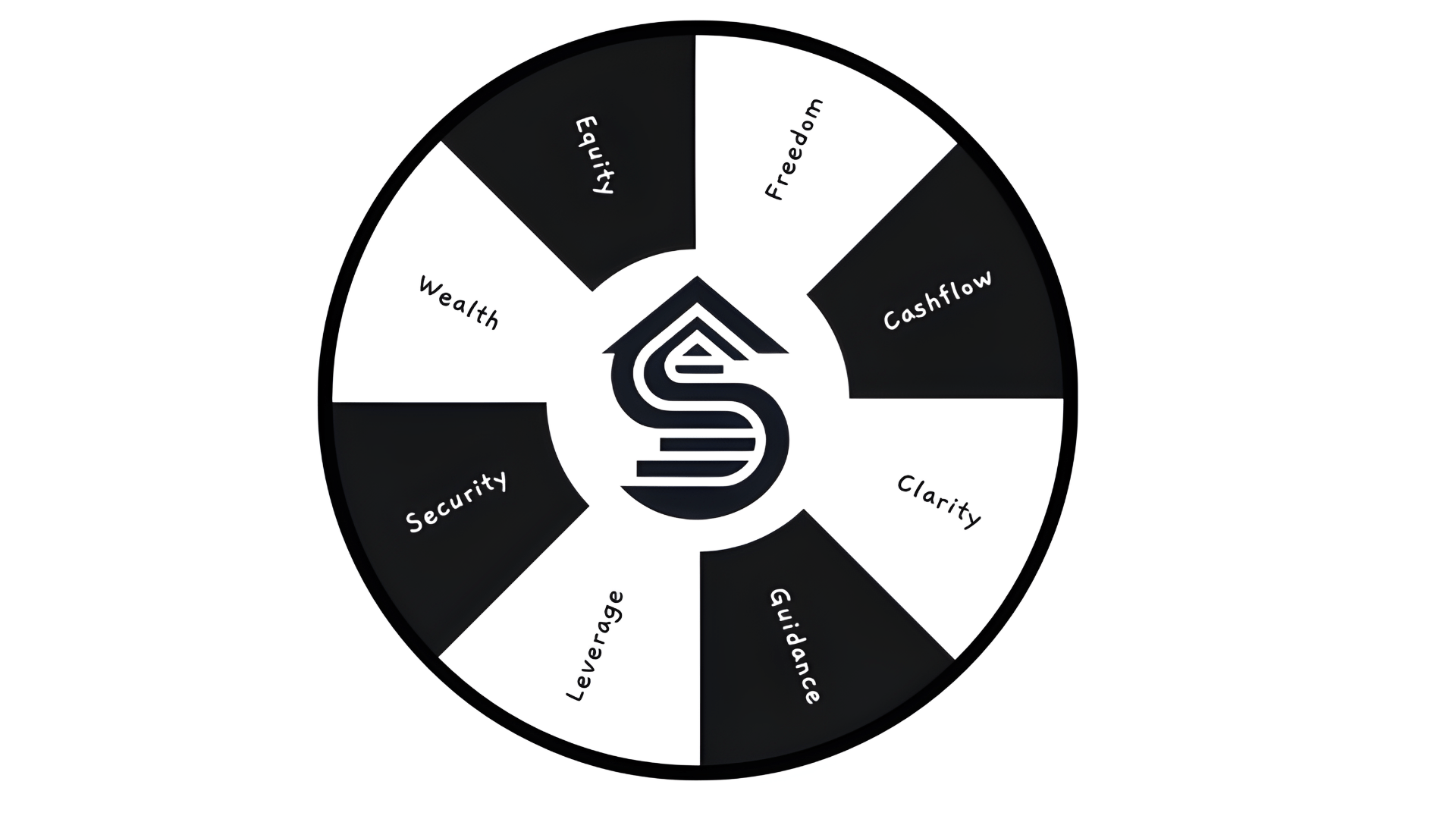Closing Costs for Buyers: Complete Breakdown and How to Reduce Them And Save Money
Closing Costs for Buyers: Complete Breakdown and How to Reduce Them And Save Money

Closing Cost Assistance: Understanding Every Fee and Charge at Closing
If you’re like most first-time buyers, your biggest worry isn’t the monthly mortgage payment—it’s the cash needed to close. Down payment. Closing costs. Escrows. Title fees. Inspections. Prepaid insurance. It adds up fast, often catching buyers off guard.
Closing costs typically range from a modest percentage to a more substantial percentage of the purchase price. On a moderate-priced home, that can mean several thousand to over ten thousand dollars in fees beyond your down payment. Many buyers save diligently for the down payment only to discover they lack sufficient cash for closing costs.
But what if you didn’t have to pay it all out of pocket? Strategic approaches exist—seller concessions, lender credits, down payment assistance covering closing costs, and smart negotiation tactics that reduce your cash requirement significantly.
In this guide, you’ll discover:
- Complete breakdown of every closing cost category (following CFPB closing disclosure standards)
- Which fees are negotiable and which aren’t (per HUD settlement cost guidelines)
- How seller concessions can save you thousands (based on Fannie Mae and FHA guidelines)
- Smart strategies for reducing costs without compromising the deal
- How different loan types affect your closing costs
This isn’t about cutting corners or sacrificing important protections. It’s about understanding where your money goes and leveraging legitimate strategies to reduce unnecessary expense while ensuring a smooth, secure closing.
Want to see estimated closing costs for your specific situation? Schedule a call for a detailed breakdown and reduction strategies.
What Are Closing Costs and Why Do They Exist?
Closing costs encompass all fees and expenses beyond your down payment that you pay to complete your home purchase. These costs cover services provided by lenders, title companies, government entities, and other professionals involved in the transaction.
Why do closing costs exist? Real estate transactions involve numerous parties providing essential services: lenders processing and funding your loan, title companies ensuring clean property ownership transfer, appraisers confirming property value, inspectors assessing condition, insurance providers protecting your investment, and local governments recording the sale. Each service has associated costs.
Closing costs fall into several major categories:
Loan-related fees cover lender services processing your mortgage application, underwriting your loan, and funding the purchase. These include origination fees, underwriting fees, processing fees, and discount points if you buy down your interest rate.
Title and escrow fees ensure you receive clear ownership free from liens or claims. Title companies search historical records, issue title insurance protecting you and your lender, and facilitate the closing process itself.
Third-party fees pay for services like appraisals confirming property value for your lender, home inspections assessing condition, surveys establishing property boundaries, and pest inspections in some areas.
Government fees include recording fees for registering the deed and mortgage with local authorities, and transfer taxes some jurisdictions charge when property changes hands.
Prepaid items and escrows establish reserves for property taxes, homeowners insurance, and sometimes mortgage insurance. You’ll prepaid several months of these expenses at closing, creating escrow accounts from which your lender pays ongoing obligations.

Understanding each category helps you identify which costs are fixed versus negotiable, and where reduction opportunities exist.
How Much Are Closing Costs Typically?
Closing costs generally range from a modest percentage to a more substantial percentage of the purchase price, though the exact amount depends on multiple factors including loan type, property location, purchase price, and lender choice.
On a moderately priced home, expect closing costs of several thousand to over ten thousand dollars. For example:
- Lower-priced properties might see costs toward the lower end
- Higher-priced properties naturally incur higher costs due to percentage-based fees
- Different states have varying fee structures and tax requirements
Factors affecting your specific closing costs:
Loan type significantly impacts fees. FHA loans include upfront mortgage insurance premium typically added to your loan amount. VA loans charge a funding fee (waived for disabled veterans). Conventional loans avoid these charges but might require private mortgage insurance with minimal down payments. USDA loans include upfront guarantee fees.
Location matters tremendously. States with higher property values typically see higher costs. Areas with transfer taxes add substantial expenses. Different jurisdictions have unique recording fees and requirements.
Down payment size affects costs. Smaller down payments typically require mortgage insurance, increasing costs. Larger down payments might reduce or eliminate this expense.
Property price influences percentage-based fees. Title insurance, appraisals, and some lender fees scale with property value.
Your credit profile impacts lender fees. Borrowers with stronger credit might qualify for reduced fees or promotional offers. Those with credit challenges might face higher costs.
Use the FHA loan calculator or conventional loan calculator to estimate your total costs including closing expenses—both show detailed breakdowns of anticipated fees based on your specific scenario.
What’s Included in Your Closing Costs? (Complete Breakdown)
Let’s examine each closing cost category in detail so you understand exactly where your money goes:
Lender Fees (Loan Origination Costs)
Loan origination fee is the lender’s charge for processing and underwriting your loan application. This typically amounts to a percentage of the loan amount but varies by lender. Some lenders charge flat fees instead.
Underwriting fee specifically covers the cost of having an underwriter review and approve your loan file, analyzing your credit, income, assets, and the property.
Processing fee compensates for administrative work gathering documentation, ordering services, and coordinating parties throughout the transaction.
Application fee covers initial costs when you apply, though many lenders waive this or roll it into other charges.
Discount points are optional costs you can pay to “buy down” your interest rate. Each point typically reduces your rate by a fraction of a percentage point. Whether points make sense depends on how long you’ll keep the loan—longer ownership periods make points more valuable.
Credit report fee covers the cost of pulling your credit reports from all three bureaus during the application process.
Title and Escrow Fees
Title search fee pays for researching property ownership history, ensuring no hidden liens or ownership claims exist.
Title insurance premiums include two policies: lender’s title insurance (required, protects the lender) and owner’s title insurance (optional but recommended, protects you). These one-time premiums provide protection for as long as you own the property.
Settlement or closing fee compensates the title company or attorney managing the closing process, document preparation, and fund disbursement.
Notary fees cover notarizing signatures on loan documents and the deed.

Third-Party Professional Services
Appraisal fee pays for a licensed appraiser to evaluate the property and provide an opinion of value required by your lender. Cost varies by property size, location, and complexity.
Home inspection fee covers your inspector’s examination of property condition, though you typically pay this directly to the inspector before closing rather than at the settlement table.
Survey fee (when required) pays for a licensed surveyor to establish exact property boundaries. Some lenders accept existing surveys, others require new ones.
Pest inspection fee covers termite or other pest inspections required in some areas or by certain loan types.
Government Fees and Taxes
Recording fees are charged by local government to officially record the deed and mortgage in public records, establishing your ownership and the lender’s lien.
Transfer taxes are levied by some states, counties, or cities when property changes hands. These vary dramatically by location—some jurisdictions charge substantial transfer taxes, others charge nothing.
HOA transfer fees apply if you’re buying in a homeowners association, covering the cost of transferring HOA records to your name and providing required HOA documents.
Prepaid Items and Escrow Reserves
Property taxes are prepaid for several months at closing. You’ll also fund an escrow account from which your lender pays ongoing property taxes.
Homeowners insurance premium requires prepaying the first year at or before closing, plus funding an escrow reserve for future premiums.
Mortgage insurance premiums (if applicable) include upfront premiums for FHA or USDA loans, plus initial escrow funding for ongoing monthly premiums.
HOA dues might require prepayment of the first few months at closing if applicable.
Interest adjustment covers interest accruing from your closing date until your first mortgage payment due date. Closing near month-end reduces this expense.
Optional or Miscellaneous Costs
Home warranty premiums cover repair or replacement of major systems and appliances, typically optional but sometimes negotiated as part of the transaction.
Attorney fees are required in some states where attorneys must handle closings, optional in others.
Courier and wire transfer fees cover expedited document delivery and electronic fund transfers.
Flood certification fee determines whether your property lies in a flood zone requiring flood insurance.
This comprehensive breakdown helps you anticipate costs and identify where negotiation or reduction opportunities might exist.
Which Closing Costs Are Negotiable?
Not all closing costs are fixed. Understanding which fees you can negotiate or eliminate helps you reduce your cash requirement:
Highly Negotiable Fees
Lender origination and processing fees vary significantly between lenders. Shopping multiple lenders reveals dramatic differences in these costs. Some lenders charge substantial origination fees, others charge minimal fees or waive them entirely—especially for strong borrowers or during promotional periods.
Discount points are entirely optional. You choose whether to pay points to reduce your interest rate based on your goals and how long you’ll keep the loan.
Lender’s title insurance premiums vary between title companies. While your lender might recommend a company, you can typically shop for better rates on owner’s title insurance and closing services (though lender’s title insurance rates are often regulated by state).
Home warranty coverage is negotiable in terms of who pays and which plan is selected. Sometimes sellers pay, sometimes buyers pay, sometimes it’s not included at all.
Somewhat Negotiable Fees
Title and escrow fees have some flexibility. You can shop different title companies in most cases (exceptions exist where sellers have legitimate reasons to choose the company). Service levels and fees vary, creating savings opportunities.
Appraisal fees are somewhat negotiable by choosing lenders who use appraisers charging competitive rates, though the range isn’t dramatic since appraisers’ fees are largely market-driven.
Non-Negotiable or Fixed Fees
Government recording fees and transfer taxes are set by law with no flexibility. Everyone pays the same rates regardless of negotiation.
Third-party service costs like surveys and pest inspections have limited flexibility—these professionals charge market rates with minimal variation.
Required insurance premiums for homeowners insurance and mortgage insurance are set by insurance companies based on underwriting criteria, not negotiation.
The key to reducing closing costs is focusing negotiation efforts where flexibility exists—primarily lender fees and seller concessions.

How Do Seller Concessions Reduce Your Closing Costs?
Seller concessions (also called seller credits) are funds the seller agrees to contribute toward your closing costs or prepaid expenses. This powerful strategy can reduce your required cash by thousands of dollars without affecting your loan approval or lowering the purchase price in ways that harm the seller.
How Seller Concessions Work
Rather than reducing the purchase price, seller concessions maintain the agreed price but have the seller pay a portion of your closing costs. From the seller’s perspective, they receive their asking price (or close to it). From your perspective, you bring less cash to closing because the seller is covering costs you’d otherwise pay.
Example: Instead of offering a lower purchase price with you paying all closing costs, you offer full asking price (or close) with the seller contributing several thousand toward your closing costs. The seller gets their number, you reduce your cash requirement—everyone wins.
Seller Concession Limits by Loan Type
Different loan programs cap how much sellers can contribute:
FHA loans allow sellers to contribute up to a substantial percentage of the purchase price toward closing costs. On a moderately priced home, this could mean tens of thousands in potential seller contribution—though few sellers would agree to pay maximum amounts.
Conventional loans with minimal down payments permit moderate contributions, typically a percentage of purchase price. Higher down payments increase the allowable contribution percentage.
VA loans allow somewhat flexible contribution percentages, plus additional concessions for specific items like payoff of collections or judgments.
USDA loans permit substantial seller contributions similar to FHA.
Even with these limits, you can request and often receive several thousand in seller concessions substantially reducing your cash needed at closing.
What Seller Concessions Can Cover
Seller contributions can pay for:
- Lender origination and processing fees
- Title and escrow charges
- Appraisal fees
- Prepaid taxes and insurance
- Escrow reserve deposits
- Home warranty premiums
- Discount points to buy down your interest rate
- HOA transfer fees
- Recording fees
What seller concessions cannot cover:
- Your down payment (this must come from your funds or approved sources like gifts or grants)
- Cash back to you at closing beyond specific allowable circumstances
When to Request Seller Concessions
You’re most likely to receive seller concessions when:
The market favors buyers, meaning inventory is high, homes are sitting longer, and sellers face limited buyer traffic. Motivated sellers prioritize closing deals over maximizing every dollar.
The property has been on market extended periods suggests the seller will negotiate aggressively to avoid further carrying costs.
The seller is relocating quickly for job transfers or other time-sensitive reasons, making them motivated to close without delays.
You’re making a strong offer in other respects—quick closing, clean contract terms, substantial earnest money, minimal contingencies—giving the seller confidence while requesting help with costs.
Offering at or near asking price makes seller concessions easier to obtain. Sometimes offering slightly above asking with concessions works—the higher price makes sellers feel they’re winning while you’re still reducing actual cash out of pocket.

How to Request Seller Concessions Strategically
Structure offers to appeal to sellers:
Present concessions as helping both parties close smoothly rather than as the seller “giving you money.” Frame it as: “We’re excited about your property and confident in the purchase price. To facilitate a smooth closing, we’re requesting seller contribution toward closing costs.”
Calculate amounts based on actual estimated costs, not arbitrary numbers. Your lender provides a loan estimate showing anticipated closing costs. Request concessions covering legitimate expenses, perhaps leaving yourself responsible for a portion to show good faith.
Coordinate with your agent and lender to present a compelling case. Your agent explains the request to the listing agent, your lender confirms you qualify for the loan at the proposed price with concessions.
Be willing to negotiate if the seller counters with a lower concession amount. Partial help is better than none.
This FHA loan case study demonstrates how a first-time buyer successfully negotiated substantial seller concessions, while this conventional loan case study shows strategic offer structuring that reduced cash needed at closing significantly.
What Other Strategies Reduce Closing Costs?
Beyond seller concessions, multiple approaches exist to reduce your cash requirement:
Shop Multiple Lenders
Lender fees vary dramatically. One lender might charge substantial origination fees, another charges minimal fees or offers no-cost refinance options (though “no-cost” typically means slightly higher interest rates, not truly zero cost). Request loan estimates from at least three lenders, comparing:
- Origination fees and discount points
- Processing and underwriting fees
- Total lender fees as a percentage of loan amount
- Interest rates at comparable fee structures
Negotiate Lender Credits
Some lenders offer credits toward closing costs in exchange for slightly higher interest rates. This trades upfront costs for marginally higher monthly payments—beneficial if you plan to refinance within a few years or don’t have cash available now.
Time Your Closing Strategically
Closing late in the month reduces prepaid interest. Since you prepay interest from closing date until your first payment due date, closing on the 28th or 29th means just a few days of interest compared to closing on the 5th and prepaying nearly a month.
This timing doesn’t reduce actual costs over the loan’s life—you’re simply spreading the expense differently—but it reduces cash needed at closing.
Shop Title and Escrow Services
In most states, you can choose your title company. Fees vary, sometimes substantially. Request quotes from multiple companies for:
- Title search fees
- Settlement fees
- Title insurance premiums (where allowed by state law)
Waive Optional Services or Items
Owner’s title insurance is optional though highly recommended. If you’re extremely cash-constrained, some buyers waive this (accepting risk) to reduce closing costs, though this isn’t generally advisable.
Home warranties are optional additions. Negotiate whether to include them and who pays.
Surveys might be waived if your lender accepts existing surveys and you’re comfortable with them.
Use Down Payment Assistance for Closing Costs
Many down payment assistance programs also cover closing costs. If you qualify for down payment assistance, maximize the benefit by using funds for both down payment and closing expenses.
Use the down payment assistance calculator to see how different assistance amounts affect your total cash requirement.
Increase Your Down Payment from Approved Sources
Gift funds from family can cover both down payment and closing costs. If parents or relatives are willing to help, structure gifts to cover your highest cash needs.
Tap equity from existing property if you’re a repeat buyer. HELOCs or cash-out refinances on current properties can fund your down payment and closing costs on a new purchase.

How Do Different Loan Types Affect Closing Costs?
Your loan choice significantly impacts closing costs. Understanding differences helps you select the program minimizing your total expense:
FHA Loans and Closing Costs
FHA loans include upfront mortgage insurance premium typically amounting to a substantial percentage of the loan amount. Most borrowers finance this into the loan rather than paying it at closing, which reduces cash needed but increases loan balance.
Advantages:
- High seller concession limits (several percentage points of purchase price)
- Lower down payment means more cash available for closing costs
- Flexible credit requirements don’t force higher fees on borrowers with imperfect credit
Considerations:
- Ongoing monthly mortgage insurance for the life of the loan with minimal down payments
- Upfront MIP adds to total cost over time
Use the FHA loan calculator to see complete cost breakdown including MIP.
Conventional Loans and Closing Costs
Conventional loans avoid upfront mortgage insurance premiums. With minimal down payments, you’ll pay monthly private mortgage insurance until reaching significant equity, but no large upfront charge.
Advantages:
- No upfront mortgage insurance premium
- PMI cancels automatically when you reach sufficient equity
- Competitive fees for borrowers with strong credit
Considerations:
- Lower seller concession limits than FHA (especially with minimal down payments)
- Might require slightly more cash at closing without upfront MIP to finance
Use the conventional loan calculator to compare total costs with and without PMI.
VA Loans and Closing Costs
VA loans charge a VA funding fee (waived for disabled veterans and certain other circumstances) that can be financed into the loan. This fee varies based on down payment and whether it’s your first VA loan.
Advantages:
- Zero down payment saves maximum cash for closing costs
- No monthly mortgage insurance despite zero down
- Moderate seller concession limits
- Some closing costs (like VA appraisal fees) have regulated maximum charges
Considerations:
- Funding fee adds to total loan cost unless waived
USDA Loans and Closing Costs
USDA loans include upfront guarantee fees similar to FHA’s upfront MIP, typically financed into the loan amount.
Advantages:
- Zero down payment maximizes cash available for closing
- High seller concession limits
- Income limits mean qualifying buyers often receive favorable terms
Considerations:
- Limited to eligible rural and suburban areas
- Upfront and ongoing guarantee fees add to total cost
What Mistakes Do First-Time Buyers Make With Closing Costs?
Avoid these common pitfalls that create stress or derail closings:
Saving only for down payment, ignoring closing costs. Many buyers diligently save their down payment but don’t account for several thousand in additional closing costs. Suddenly they lack sufficient funds or must drain savings completely, leaving no emergency reserves.
Not requesting loan estimates early. Obtain loan estimates from lenders during shopping phase so you know total costs before committing to a property. Waiting until under contract to discover actual costs can force uncomfortable decisions or prevent closing.
Failing to compare lenders carefully. Assuming all lenders charge similar fees costs thousands unnecessarily. The lowest interest rate doesn’t always mean lowest total cost—evaluate complete packages including fees.
Not negotiating seller concessions in competitive markets. Even in hot markets, you can sometimes secure modest seller contributions. Don’t automatically assume sellers will refuse—ask strategically.
Accepting first quotes without shopping title services. Title company fees vary, sometimes substantially. Requesting quotes from multiple companies can save hundreds or more.
Ignoring prepaid interest timing. Closing early in the month when you could close late unnecessarily increases cash needed. Coordinate with all parties to optimize timing.
Not understanding what seller concessions can and cannot cover. Some buyers incorrectly think seller concessions cover down payments or provide cash back. Understanding actual rules prevents disappointing surprises.
Making large purchases or opening credit accounts during the process. New debt increases your debt-to-income ratio, potentially affecting loan approval or increasing costs. Wait until after closing for major purchases.

How Does Stairway Mortgage Help You Minimize Closing Costs?
Navigating closing costs effectively requires expertise and strategy. At Stairway Mortgage, we guide first-time buyers through every aspect of reducing their cash requirement:
We provide detailed loan estimates early in your process so you understand total costs before falling in love with a property. No surprises at closing—you’ll know anticipated expenses from the beginning.
We help you structure offers maximizing seller concessions by coordinating with your agent to present compelling proposals balancing price and concessions. We explain loan program limits and market strategies increasing your chances of acceptance.
We shop our network of service providers to find competitive rates on appraisals, title services, and other third-party costs where flexibility exists. Our relationships often provide access to better pricing than individual buyers can obtain.
We evaluate whether lender credits make sense for your situation. If trading slightly higher rates for reduced upfront costs fits your plans—perhaps because you’ll refinance in a few years—we structure your loan accordingly.
We identify all available assistance programs that can cover closing costs, not just down payments. Many down payment assistance programs we help you access also reduce or eliminate closing cost requirements.
We time closings strategically when possible to minimize prepaid interest without disrupting other transaction needs. Every day matters when it comes to cash required at closing.
We explain every line item on your loan estimate and closing disclosure so you understand exactly where your money goes. Knowledge eliminates anxiety and helps you make informed decisions.
Many of our first-time buyer clients saved thousands on closing costs through strategic offer structuring, seller concessions, and careful lender selection—all facilitated through our guidance.
Ready to Understand and Reduce Your Closing Costs?
Closing costs don’t need to be mysterious or overwhelming. Armed with knowledge about each cost category, which fees are negotiable, and how to leverage seller concessions, you can approach closing confidently knowing you’re minimizing unnecessary expense.
Your next steps:
If you’re actively under contract and need help understanding or negotiating closing costs, schedule a call to review your specific situation and identify reduction opportunities.
If you’re still preparing to buy, get pre-approved to receive detailed loan estimates showing anticipated closing costs so you can budget accurately.
If you want to explore different loan programs and their cost structures, use our calculators:
- FHA loan calculator with complete closing cost breakdown
- Conventional loan calculator showing all fees
- VA loan calculator for military members
Remember: Closing costs represent real money leaving your pocket, but strategic approaches can reduce these expenses significantly without compromising your transaction security or quality of service. Don’t accept costs at face value—negotiate, shop, and leverage every legitimate strategy to minimize your cash requirement.
Frequently Asked Questions
Can I finance closing costs into my mortgage?
Generally no, you cannot directly finance closing costs into your mortgage beyond specific amounts. However, you have alternatives that achieve similar results: seller concessions reduce your out-of-pocket costs while maintaining loan amount; lender credits trade slightly higher interest rates for reduced upfront costs; some down payment assistance programs cover closing costs; and refinances sometimes allow you to roll certain costs into the new loan. The key is that most purchase transactions require you to bring cash for closing costs beyond down payment, though these strategies minimize how much cash you need.
What’s the difference between prepaids and closing costs?
Prepaids are expenses you pay at closing but represent future obligations like property taxes, homeowners insurance premiums, and interest from closing date to first payment due date. These go into escrow accounts from which your lender pays ongoing bills. Closing costs are fees for services completing the transaction like lender origination fees, title insurance, appraisals, and attorney fees. Both appear on your closing disclosure, but prepaids establish accounts for ongoing expenses while closing costs pay for one-time transaction services. Both require cash at closing, though prepaids aren’t technically “lost”—they’re advance payments for expenses you’d pay anyway.
How accurate are loan estimates compared to actual closing costs?
Loan estimates are quite accurate for most fees though some can change. Lender charges, transfer taxes, and other fees under lender control typically cannot increase beyond small tolerances. Third-party services you cannot shop for (like appraisals) can only increase within modest limits. Services you can shop for (like title services) have no limits if you don’t use companies the lender identified. Your actual closing disclosure received at least three business days before closing shows final numbers. Significant unexpected increases in restricted categories require lenders to provide revised disclosures and potentially delay closing. Generally, if you use recommended service providers and nothing unusual occurs, actual costs closely match loan estimates.
Are closing costs tax deductible?
Some closing costs offer tax benefits, others don’t. Discount points paid to buy down your interest rate are generally deductible in the year paid (subject to limitations and requirements—consult tax professionals). Property taxes and mortgage interest paid at closing are deductible. Appraisal fees, title insurance, attorney fees, recording fees, and other transaction costs are not deductible as immediate expenses though they may add to your property’s cost basis, affecting capital gains calculations when you eventually sell. Consult a qualified tax advisor about your specific situation—tax laws change and individual circumstances vary. Never make closing cost decisions based solely on potential tax benefits without professional guidance.
Can I negotiate closing costs after receiving my loan estimate?
Yes, you can and should negotiate fees, though timing and which fees matter. After receiving loan estimates, compare multiple lenders and negotiate with your preferred lender using competitors’ quotes as leverage. Lender origination fees and discount points are most negotiable. Request lender credits toward closing costs if they can’t reduce fees further. You can also shop title companies and other service providers identified on the loan estimate, potentially finding better rates. However, once you’re locked in rates and close to closing, negotiating becomes harder—lenders are less flexible, and changing service providers might delay your transaction. Negotiate during the shopping phase for maximum leverage and options. Use the conventional loan calculator or FHA calculator to model different fee scenarios and see total cost impacts.
What happens if I don’t have enough cash at closing?
Several options exist if you’re short on closing funds, though prevention is better than scrambling at the last minute. First, request additional seller concessions if still in negotiation phase. Second, ask your lender about lender credits trading slightly higher rates for closing cost assistance. Third, bring additional acceptable sources like gift funds from family or down payment assistance programs. Fourth, request extension to closing date giving you more time to gather funds (sellers might not agree). Fifth, in extreme situations, you might need to terminate the contract if your financing contingency hasn’t expired, recovering your earnest money. The best approach is getting accurate loan estimates early, understanding total cash required, and arranging all funds well before closing. Never go into closing hoping to figure it out—prepare early.
Also Helpful for First-Time Home Buyers
Loan Programs and Closing Costs:
Understand how different loans structure costs:
- Review FHA loan costs including MIP structure
- Explore conventional loan fees with flexible terms
- Check VA loan costs for military members
- Consider USDA loan fees for rural properties
Calculate your total costs accurately:
- FHA loan calculator with complete closing cost breakdown
- Conventional loan calculator showing all fees
- Down payment assistance calculator including closing cost coverage
See real examples of cost management:
- FHA loan case study with successful cost reduction
- Conventional loan case study showing strategic approach
- Down payment assistance success covering closing costs
What’s Next in Your Journey?
Now that you understand closing costs, additional knowledge helps you complete your journey to homeownership:
Final steps before closing:
- Understanding your final walkthrough responsibilities
- Reviewing closing disclosure for accuracy
- Coordinating moving and utility transfers
- Planning your first month as a homeowner
- Understanding your ongoing financial obligations
Each step builds on the foundation you’re establishing now—moving from uncertain buyer to confident homeowner who makes informed financial decisions.
Explore Your Complete Options
Loan Programs with Different Cost Structures:
- Browse all loan programs comparing fee structures
- Explore low-cost loan options with favorable terms
- Review assistance programs covering costs
Tools for Complete Planning:
- Access all calculators for total cost modeling
- Use purchase calculators with closing costs included
- Try comparison tools for different programs
Success Stories for Guidance:
- Read all case studies across scenarios
- Browse first-time buyer journeys with cost strategies
- Explore creative financing approaches
Need help reducing your closing costs? Schedule a call to discuss your specific situation and identify all available reduction strategies.
Need a Pre-Approval Letter—Fast?
Buying a home soon? Complete our short form and we’ll connect you with the best loan options for your target property and financial situation—fast.
- Only 2 minutes to complete
- Quick turnaround on pre-approval
- No credit score impact
Got a Few Questions First?
Let’s talk it through. Book a call and one of our friendly advisors will be in touch to guide you personally.
Schedule a CallNot Sure About Your Next Step?
Skip the guesswork. Take our quick Discovery Quiz to uncover your top financial priorities, so we can guide you toward the wealth-building strategies that fit your life.
- Takes just 5 minutes
- Tailored results based on your answers
- No credit check required
Related Posts
Subscribe to our newsletter
Get new posts and insights in your inbox.








